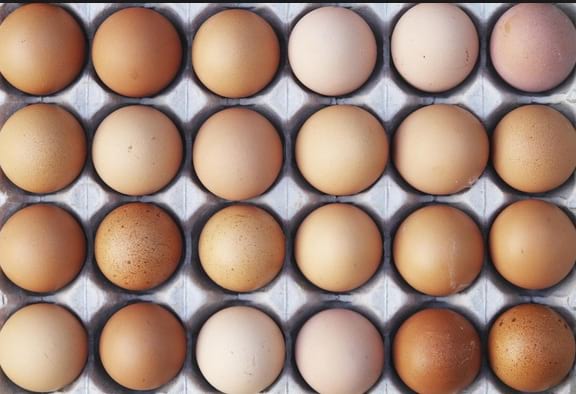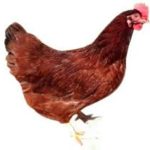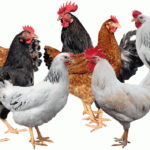One of the joys of chicken farming is daily egg collection once the hens start laying. Farmers often show great despair when the daily egg collections start dropping significantly and get very demoralized. A sudden or significant drop in egg laying is an indicator of some problems in the management of the laying hens, and just as continuously checking the chicken droppings can give farmers a clue into problems with the health of their chicken, so a drop in egg laying can show the farmer signs of an underlying problem.

Variations in egg production can be activated by environmental, behavioral, emotional or physical factors. While some of these triggers may have solutions to correct, others are harmless and require no action at all as they are self-correcting. To help determine where the source of the sudden decline in egg laying, a farmer is required to ask some critical questions in the quest to find a solution. Has there been any changes in the feed given to the chicken? Has the flock been hit by any incidences of diseases in the recent past? Has new flock been introduced in the chicken house? Did the farmer make any modifications on housing? Has there been changes in the weather? Has there been alterations in lighting? These among others will help locate what could have affected the birds.
Some of the causes of sudden egg decline are as follows:
Chicken that are brooding
In the chicken house, one laying hen that stops laying and starts brooding can set in motion a chain reaction throughout the chicken house. Given that it has to stop laying so as to start brooding, this behavior can be copied by a large number of hens in the flock leading to a reduced number of eggs laid by others. Brooding should then be set to happen away from laying boxes to help curb this.
Water
Water helps a great deal in the formation of eggs. Adequate, generous, clean quantities should therefore be given to the chicken and placed in areas where they can access it easily. Always avail water in large quantities and ensure it is not very cold or hot such that its temperature discourages drinking.
Diseases or parasites
If your hens are sick or they have parasites like worms, laying will automatically be affected. A reduction will therefore at times be an indicator of parasite infestation among the birds. If new flock had been introduced into the chicken house followed closely by a decrease in egg production, chances are that the new flock came in with some communicable diseases which should be investigated. When some chicken die, it is important to seek out a veterinary specialist to carry out a post mortem of the carcass to identify the cause of death and help arrest its devastating impact on the rest of the flock early enough from a point of information.
Laying eggs haphazardly or hiding of eggs
Some laying hens are in the habit of laying in different places i.e. bushes, under seats or any other hidden places. Others also have the bad habit of not laying in one place. The egg count in the farm will therefore keep reducing due to this habits. This bad habit can be curbed by making laying nests warm and comfortable and generally training the birds to lay in one particular place.
A sudden change or instances of Stress
The actions of the farmer or any other external factors, some well-intentioned can have devastating consequences leading to stress and thus reduction in egg laying. Hens have been found to be very responsive to stress and can be affected for very long periods of time by certain disturbances. A change in the structure of the chicken house, a sudden in feeds provided, addition or death of large numbers of flock, parasites such as worms, excessive heat, vicious fight with a predator, dogs barking, irritation from the actions of children among others.
The shedding of Feathers
The natural way through which chicken shed their old feathers for new ones also called molting leads to diversion of proteins from the production of eggs to the development of new feathers. This can lead to decline in egg production. It is important therefore to give protein supplements during molting to ensure both processes go on without interruption.
- A decrease in lighting can cause a reduction in egg production. Hens need at least fourteen to sixteen hours of light each day in order to lay eggs effectively. Light plays a role in motivating or triggering the pituitary glands to begin the process of production of eggs.
- Reproductive Defects or problems: Incidences of diseases or problems in the oviduct can cause egg production to stall. Any swelling in the abdomen or related complications should therefore be reported to a vet specialist immediately.
- A decline in egg production can also be as a result of age. Naturally, flock that have grown old will produce fewer eggs due to changes in body functions due to the passage of time. This happens from the age of two onwards.
- Eggs cab also decline due to attack by predators e.g. snakes, rats or raccoons. The chicken house should be properly secured against all predators.
- Eggs could also be reducing due to the eating of eggs by the chicken. Always ensure there are no broken eggs left in the chicken house because once the hens discover how rich the protein in the eggs is, putting a brake to the habit can be a very difficult task.

